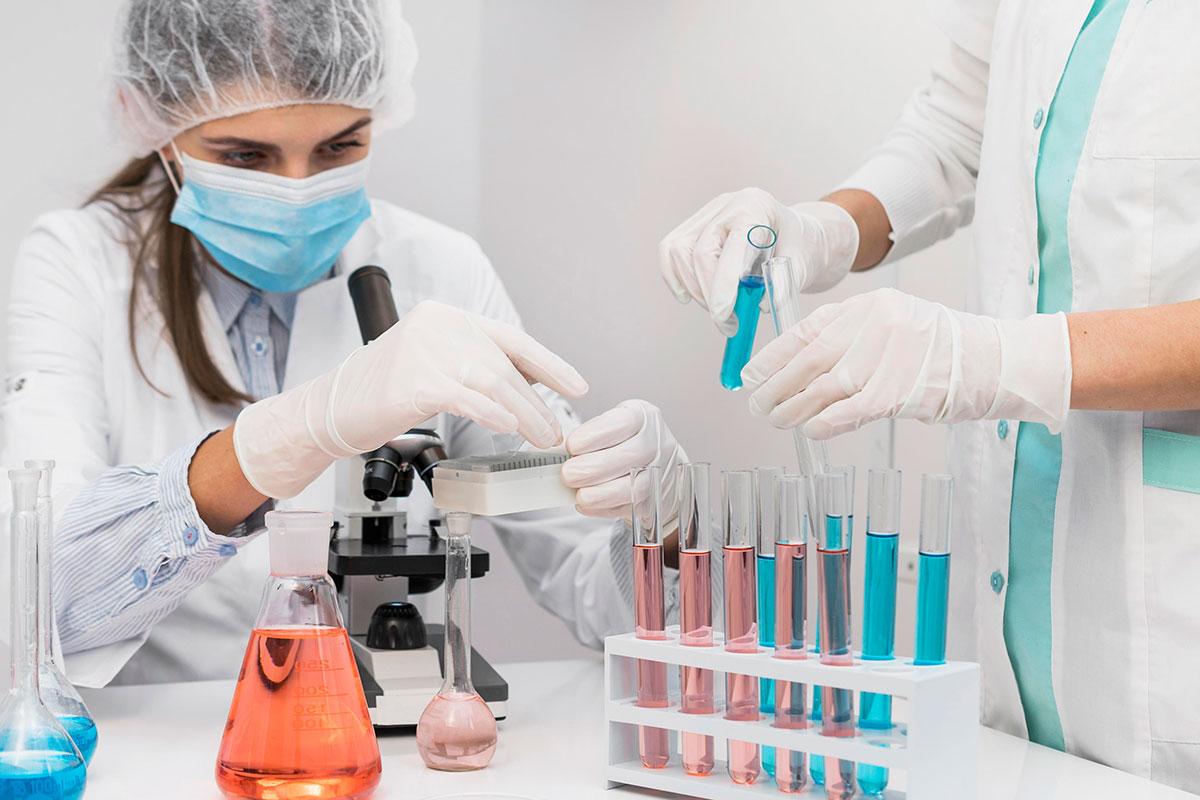The hormone testosterone (T) is often associated with masculinity, but the female body can also make testosterone.
Yet too little or too much testosterone in men or women can indicate severe health problems.
In males, the testicles make testosterone. In females, the ovaries produce the hormone.
What is testosterone?
Testosterone is responsible for traits such as:
- body hair
- muscle mass
- strength
- sex drive
- mood
Males with low testosterone levels might notice a reduction in these traits, while females with too much testosterone might notice an increase in these traits.
You may even want to take a testosterone level test if you believe your testosterone levels are not within the standard range. What’s more, testosterone helps males make sperm, so they may wonder about their testosterone levels if they and a partner are having trouble conceiving.
Most testosterone is attached to proteins in the blood, but some float freely. That means two types of testosterone can be measured:
- total testosterone — a measure of testosterone that is both attached to proteins and free
- free testosterone — testosterone that is not attached to proteins; can be specifically measured when ruling out certain medical conditions
Understanding testosterone levels
A standard range for testosterone level in males is 300 to 1,000 nanograms per deciliter (ng/dL). For females, it’s between 15 and 70 ng/dL. Still, testosterone levels can change throughout your life.
Testosterone levels can decrease naturally due to your age or other health conditions.
After age 30, a male’s testosterone levels can decrease by up to 2 percent every year. Some symptoms of low testosterone, particularly erectile dysfunction, are commonly seen in men over age 30. Low testosterone levels have often been observed in people with obesity, no matter their age.
The most common testosterone-related problem in males is hypogonadism, also called low testosterone. To be diagnosed with hypogonadism, a person must not have only low testosterone levels but also experience symptoms of low testosterone.
Low testosterone symptoms
Your testosterone level may be abnormally low if you have one or more of the following symptoms:
- decreased sex drive
- inability to achieve an erection (erectile dysfunction)
- inability to conceive a child
- overall tiredness
High testosterone symptoms
Females with too much testosterone may grow facial hair, develop a deeper voice, or experience decreased breast size. Too much testosterone in females can also cause acne.
One possible cause of too much testosterone in females is polycystic ovary syndrome (PCOS). PCOS can make it difficult to get pregnant and interfere with menstruation.
Sometimes, too much T is the result of a condition known as congenital adrenal hyperplasia (CAH). This testosterone overload can result in males having an abnormally large penis and females having abnormal genitalia at birth.
In some cases, CAH can cause males to have a very deep voice and females to grow facial hair.
CAH can be diagnosed early in infants because it causes dehydration, poor feeding habits, and other symptoms. It can also cause stunted growth, even though someone with this condition may be tall when they’re young.
What if I’m experiencing symptoms?
Abnormally high or low testosterone levels in males and females can indicate other serious conditions.
High T levels can indicate ovarian or testicular cancer. Low T levels can indicate chronic illness or a problem with the pituitary gland, which releases hormones.
In infant boys and girls, signs of abnormal testosterone levels may be more extreme. Testosterone tests are often ordered for boys and girls who are not developing properly or when parents notice delayed puberty.
Young males with low T may grow slowly, with no body hair and poorly developed muscles. When they have high T, they may enter puberty early and robustly. Young females with high T may have delayed menstruation or too much body hair.
How is a testosterone test performed?
Getting testosterone levels checked usually requires a blood test. The test is usually performed in the morning when T levels are highest. Sometimes, the test needs to be retaken to confirm the measurements.
Before the test, a doctor may ask you to stop taking any prescriptions that could affect your testosterone levels. Some medications that can artificially increase your testosterone levels include:
- steroids (but T levels can fall rapidly after stopping them)
- barbiturates
- anticonvulsants
- androgen or estrogen therapies
Some medications, including opiates, can artificially decrease your testosterone levels. If you’re taking any of the medications above, tell a doctor. They’ll ensure that your testosterone test results are accurate.
If your test results are low, you can talk with a doctor to confirm the results. They can discuss how to best address your testosterone levels.
Even if your T levels are within range, but you are experiencing symptoms, it is still worth talking with a doctor because it might indicate an underlying issue.
Depending on your symptoms, a doctor may also perform a physical examination. If you’re male, a doctor may perform a physical if they notice:
- a loss of facial hair
- a loss of height
- signs of gynecomastia, an abnormal increase in breast tissue size
- abnormal weight gain
If you’re female, a doctor may perform a physical if they notice:
- abnormal facial acne
- abnormal hair growth on your lips or chin (hirsutism)
- abnormal hair thinning or balding on the head
Testosterone home testing kits are widely available from several companies, including LetsGetChecked, EverlyWell, and Progene. They use your blood or saliva to test your hormone levels. After taking the test, you’ll send your sample to a laboratory for testing.

Several studies have confirmed that saliva offers a relatively accurate measurement of testosterone levels and should continue to be clinically tested to confirm that saliva samples are a reliable replacement for blood samples.
Some research suggests salivary testing is not fully reliable, though. Supplemental tests, such as serum testing, are necessary to ensure that salivary test results are accurate.
What your testosterone test results mean
If you or a doctor test your testosterone levels, and they are low, this may be a result of aging, but it could also be due to underlying conditions, including:
- chronic diseases
- injury
- use of certain medications
- genetic conditions
Results that indicate testosterone levels are too high could be an indication of:
- potential tumors
- early puberty in young males
- CAH in children and babies
Normal testosterone levels in males
It’s important to speak with a doctor after receiving your results to better understand what they mean for you and your health. If a doctor has any concerns, they may consider a full diagnosis and treatment plan.
Levels between 300 and 1000 nanograms per deciliter (ng/dL) are the most common levels.
According to the American Urology Association, levels below 300 ng/dL should be classified as low T or hypogonadism.
Testosterone levels typically decrease with age, so it’s not unusual to have lower levels at an older age. In fact, 50 percent of men over age 80 may have low T levels.
How can I treat my abnormal testosterone levels?
Ask a doctor about testosterone tests if you suspect you have below-standard hormone levels or if you notice developmental issues in your children. A wide range of treatments is available.
Some treatments include testosterone pellet implants and an oral testosterone supplement approved by the Food and Drug Administration (FDA).
The most common treatment for low testosterone is testosterone replacement therapy (TRT). TRT is given as an injection, a skin patch, or a topical gel containing testosterone that replaces the testosterone missing from your body.
Though this treatment is common, TRT is known to have some risks and side effects, including:
- sleep apnea
- acne
- blood clot formation
- possible worsening of benign prostatic hyperplasia, or prostate growth
- possible increased risk of heart attacks and strokes
If you’re taking any medications or supplements (such as steroids) that abnormally affect your testosterone levels, a doctor may ask you to stop taking them or suggest an alternative.
Ask your additional questions to our qualified medical professionals for free, contact us here.
